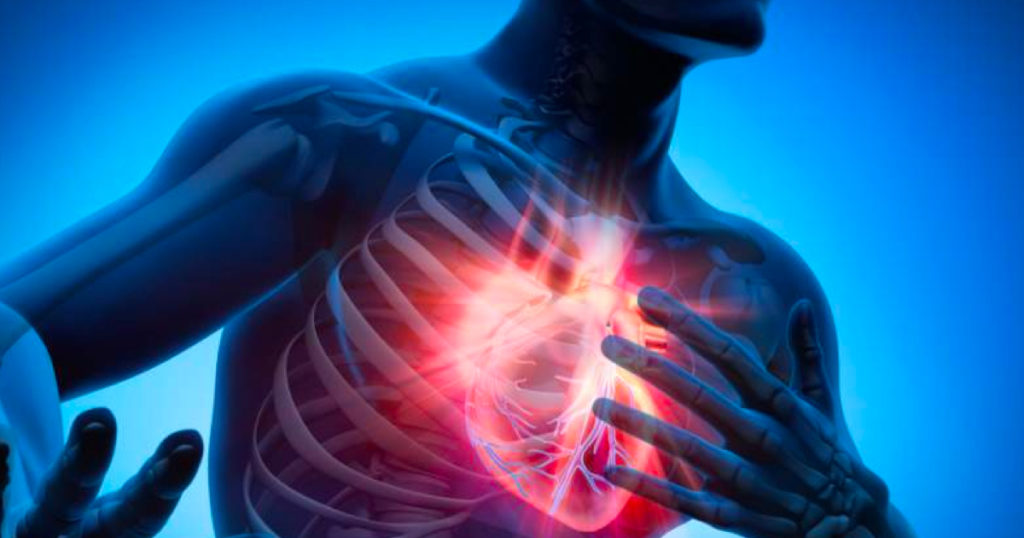Summary
- Heart disease is one of the leading causes of death in the United States, with an economic burden of $219 billion per year on average.
- Lack of oxygen in the body due to sleep apnea leads to complications like Type 2 diabetes, metabolic syndrome, liver problems, cardiac problems, etc.
- Sleep apnea adds to the problem of obesity, as sleep deprivation contributes to the unhealthy cycle that further promotes obesity.
- Sleep apnea is associated with a rapid decrease in the oxygen level in blood and increased stress hormones, which causes increased blood pressure.
- Obstructive sleep apnea is also considered to multiply your risk of developing recurrent heart attacks, abnormal heartbeats, and stroke.
- Breathing machines (CPAP) used to treat sleep apnea can revamp the heart; thus, it can improve cardiac function and prevent heart failure.
Sleep apnea is a severe condition in which the individual experiences repeated pauses in breathing about 5 to 30 times in an hour during sleep. Recurrent episodes of breathing hiatus cause depletion of oxygen in the body, which leads you to gasp for air. If you are a loud snorer and feel tired and sleepy even after waking up in the morning, you might be suffering from sleep apnea. [1]
Heart disease is one of the leading causes of death in the United States, with an economic burden of $219 billion per year on average. About one in four deaths of Americans occur due to heart disease. [3]
In this article, we will talk about the effect of sleep apnea on heart health.
Does Sleep Apnea Cause Heart Diseases?
Lack of oxygen in the body due to sleep apnea not only makes you sleep deprived and tired but also leads to other health complications, which include:
- Type 2 diabetes
- Metabolic syndrome
- Liver problems
- Cardiovascular problems such as high blood pressure, arrhythmia, and heart failure [2]
How is Sleep Apnea Related to Heart Diseases?
One of the potential risk factors of sleep apnea is obesity. While being overweight itself predisposes a person to heart problems, sleep apnea aggravates the issue. Sleep deprivation contributes to an unhealthy vicious cycle that further promotes obesity and depletes heart health. [1]
Sleep apnea is associated with a rapid decrease in the blood’s oxygen level, leading to increased blood pressure, which puts excessive strain on the heart. When this occurs repetitively, there is a high risk of developing chronic high blood pressure (hypertension).
With the repeated drop in blood oxygen levels and lack of sleep, the body is stressed out and triggers the release of stress hormones such as epinephrine. Frequently elevated levels of these hormones further contribute to high blood pressure.
Obstructive sleep apnea is considered to multiply your risk of developing recurrent heart attacks, abnormal heartbeats, and stroke. People with heart disease are in grave danger of sudden death due to irregular heartbeat because of repeated hypoxic conditions in the bloodstream.
Research has shown that 35% of people who suffer from hypertension, 47% to 83% of those with cardiovascular disease, and 12% to 53% of people who had heart failure, atrial fibrillation, and stroke had a preexisting sleep disorder. Moreover, it has been found that if left untreated, sleep apnea poses five times increased risk of death due to heart disease. [4]
Can Heart Damage from Sleep Apnea Be Reversed?
A study published by the American Heart Association observed that heart damage occurs in patients with sleep apnea even if they do not experience any symptoms.
Sleep apnea is treated through a mechanical therapy referred to as continuous positive airway pressure (CPAP). During this treatment, the air is gently forced into the lungs using a face mask to keep the airways open.
The studies have shown that if patients with sleep apnea received CPAP treatment for six months, the follow-up echocardiogram scan showed a considerable reversal of their heart damage. Subsequently, breathing machines used to treat sleep apnea can revamp the heart; thus, improving cardiac function and preventing heart failure. [5]
Bottomline
Sleep apnea is a severe medical condition closely linked to other health concerns rather than just sleep deprivation and tiredness. If you or your partner is troubled by snoring or persistent daytime fatigue, consult your doctor immediately. In case you are diagnosed with sleep apnea, your doctor might recommend CPAP therapy. Timely medical intervention can help prevent future health complications.
References:
- Anonymous. Sleep Apnea and Heart Disease. Jul 2015. https://www.heart.org/en/health-topics/consumer-healthcare/what-is-cardiovascular-disease/sleep-apnea-and-heart-disease-stroke
- Anonymous. Sleep Apnea. Mayo Clinic. Jul 2020. https://www.mayoclinic.org/diseases-conditions/sleep-apnea/symptoms-causes/syc-20377631.
- Anonymous. Heart Disease Facts. Center for Disease Control and Prevention. Sept 2020. https://www.cdc.gov/heartdisease/facts.htm
- Anonymous. How Sleep Apnea Affects the Heart. Harvard Heart Letter. Feb 2013. https://www.health.harvard.edu/heart-health/how-sleep-apnea-affects-the-heart
- Butt M Et Al. Left Ventricular Systolic And Diastolic Function In Obstructive Sleep Apnea. Circulation: Heart Failure. Mar 2012;5(2). https://www.ahajournals.org/doi/full/10.1161/CIRCHEARTFAILURE.111.964106


